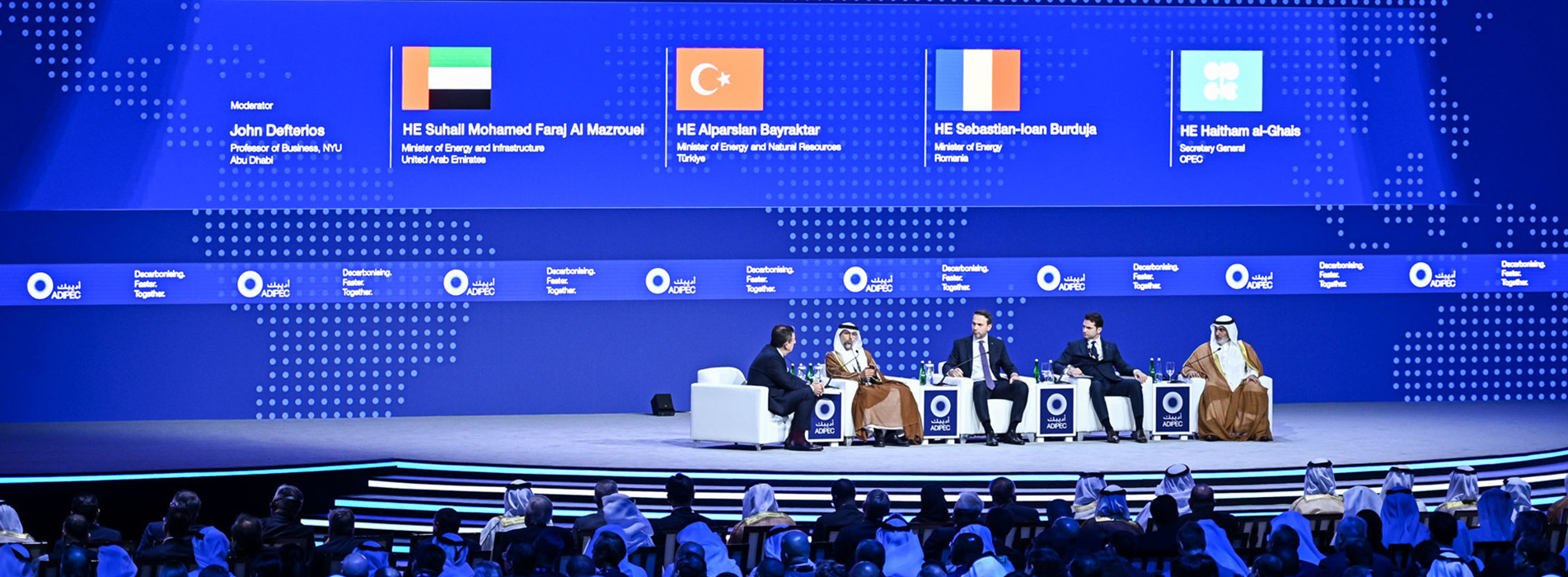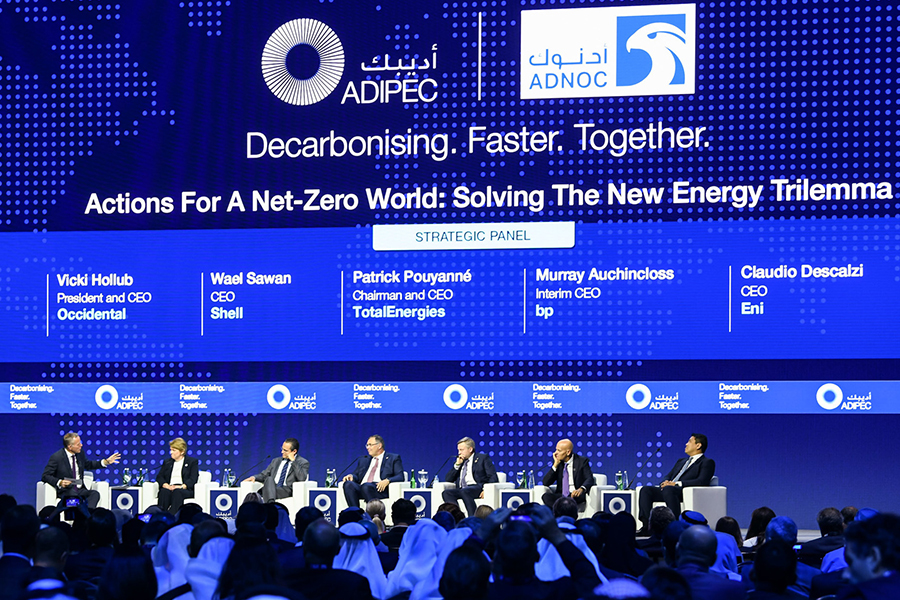تحت رعاية صاحب السمو الشيخ محمد بن زايد آل نهيان، رئيس دولة الإمارات العربية المتحدة
Under the Patronage of
H.H. Sheikh Mohamed Bin Zayed Al Nahyan,
President of the United Arab Emirates
Under the Patronage of H.H. Sheikh Mohamed Bin Zayed Al Nahyan, President of the United Arab Emirates

Conference Delegates
Conference Speakers
Conference Sessions
Conferences

The year 2024 is set to be an important one in energy, with countries and industries working to advance the commitments made and targets set at COP28, and demonstrate tangible actions accelerating the energy transition in the lead up to COP29.
Across 10 conferences and more than 350 sessions, the ADIPEC 2024 conference programme will provide timely strategic and technical insights through curated sessions featuring the insights of over 1,600 ministers, global policymakers, CEOs and innovators.
Speakers will engage in impactful, outcome-driven dialogue centred on eliminating emissions, accelerating the decarbonisation of heavy industries as well as scaling up investment and innovation in clean energies and technologies.
With more than 16,500 delegates from energy, technology, finance, shipping, logistics, manufacturing, policy, and academia expected to attend ADIPEC 2024’s conferences, the event will play a critical role in moving the needle forward on major industry priorities and help address key challenges as part of the global energy transition.

As the UAE prepares to host COP28 in 2023, the ideas we have discussed, the solutions we have explored, and the commitments we have made at ADIPEC 2022 will help advance an energy future that is secure, affordable and sustainable.
